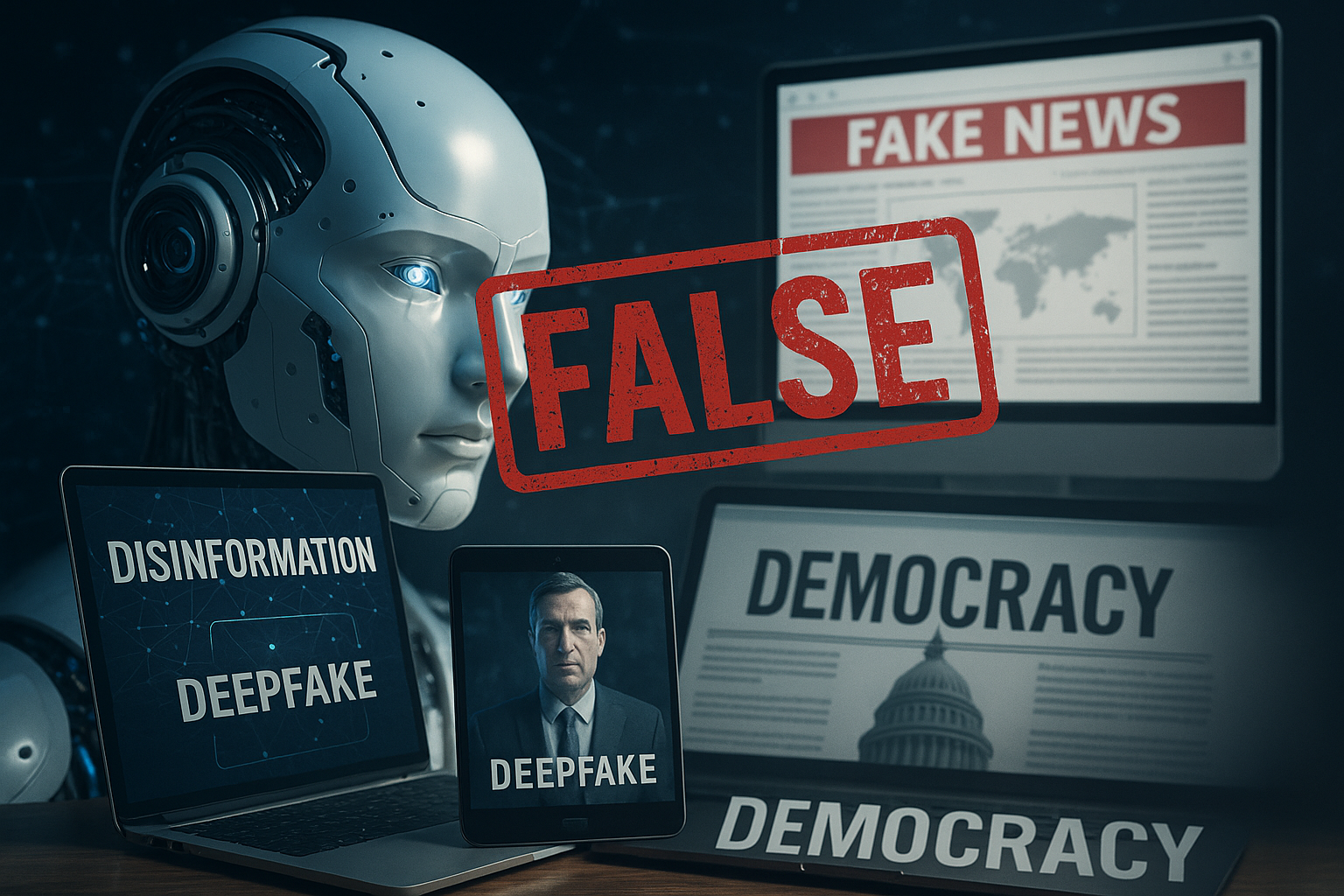Generative AI fuels false narratives, undermining public trust in democratic systems
The report warns that AI-driven disinformation not only misinforms the public but also erodes trust in democratic processes. By sowing confusion and fostering division, such campaigns weaken the foundations of electoral systems, governance, and societal cohesion.

Artificial intelligence (AI) is transforming the way information spreads, but it is also intensifying the disinformation crisis threatening democracies worldwide. A new study published in Frontiers in Artificial Intelligence warns that AI-generated content, from fake news to deepfakes, is amplifying the reach and impact of false narratives, undermining public trust, and destabilizing political institutions.
The study titled "AI-driven Disinformation: Policy Recommendations for Democratic Resilience" examines the growing sophistication of AI-powered disinformation campaigns and outlines urgent measures needed to protect democratic societies.
How is AI transforming the disinformation landscape?
The study reveals that AI is dramatically changing the nature of disinformation. Generative AI tools can now produce realistic fake content, including fabricated news articles, manipulated images, and deepfake videos, at unprecedented speed and scale. These tools allow malicious actors to craft highly targeted narratives that blend seamlessly into legitimate information ecosystems, making detection and prevention increasingly difficult.
Apart from content creation, AI algorithms used on social media platforms amplify sensational and polarizing content to maximize engagement. This dynamic boosts the visibility of disinformation, even when its origins are traceable to bot networks or synthetic accounts. According to the researchers, this cycle of algorithmic amplification creates information environments that are distorted, polarized, and highly susceptible to manipulation.
The report warns that AI-driven disinformation not only misinforms the public but also erodes trust in democratic processes. By sowing confusion and fostering division, such campaigns weaken the foundations of electoral systems, governance, and societal cohesion.
Why are current regulations failing to stop AI-enhanced disinformation?
While governments have introduced regulatory frameworks to address AI risks, the study finds that current measures remain fragmented, reactive, and insufficient. The European Union’s AI Act and other national laws mark progress, but enforcement gaps and jurisdictional inconsistencies leave vulnerabilities that malicious actors can exploit.
The researchers point out that the rapid evolution of AI technologies outpaces existing policies. Laws often struggle to adapt to new threats, allowing disinformation campaigns to exploit legal gray areas. Moreover, the lack of international coordination enables cross-border operations to flourish, as disinformation networks can relocate to jurisdictions with weaker enforcement.
The study also identifies weaknesses in technological countermeasures. While AI tools can be deployed to detect fake content, these systems themselves are vulnerable to bias and evasion tactics. Without diverse datasets, continuous bias audits, and adaptive learning, detection technologies risk falling behind adversaries.
What strategies can strengthen democratic resilience?
To address these growing threats, the authors propose a set of multi-layered policy interventions aimed at building resilience against AI-driven disinformation. Key recommendations include:
- Bias Audits and Diverse Training Data: Improving the accuracy and reliability of AI detection tools requires continuous evaluation and the use of inclusive datasets that minimize bias.
- International Cooperation: Harmonized regulations, intelligence sharing, and joint enforcement mechanisms are essential to counter cross-border disinformation campaigns.
- Adaptive Regulatory Frameworks: Policies must be flexible enough to evolve alongside technological advancements, ensuring they remain effective against emerging threats.
- Public Awareness Campaigns: Educating citizens on how to recognize and resist disinformation builds cognitive resilience, reducing the societal impact of false narratives.
- Cross-Sector Collaboration: Governments, technology companies, academia, and civil society must work together to develop coordinated responses, share best practices, and enhance detection and mitigation strategies.
The study also highlights the role of ethical AI development. Technology companies must adopt transparent practices, conduct risk assessments, and prioritize accountability to prevent their tools from being misused.
- FIRST PUBLISHED IN:
- Devdiscourse










